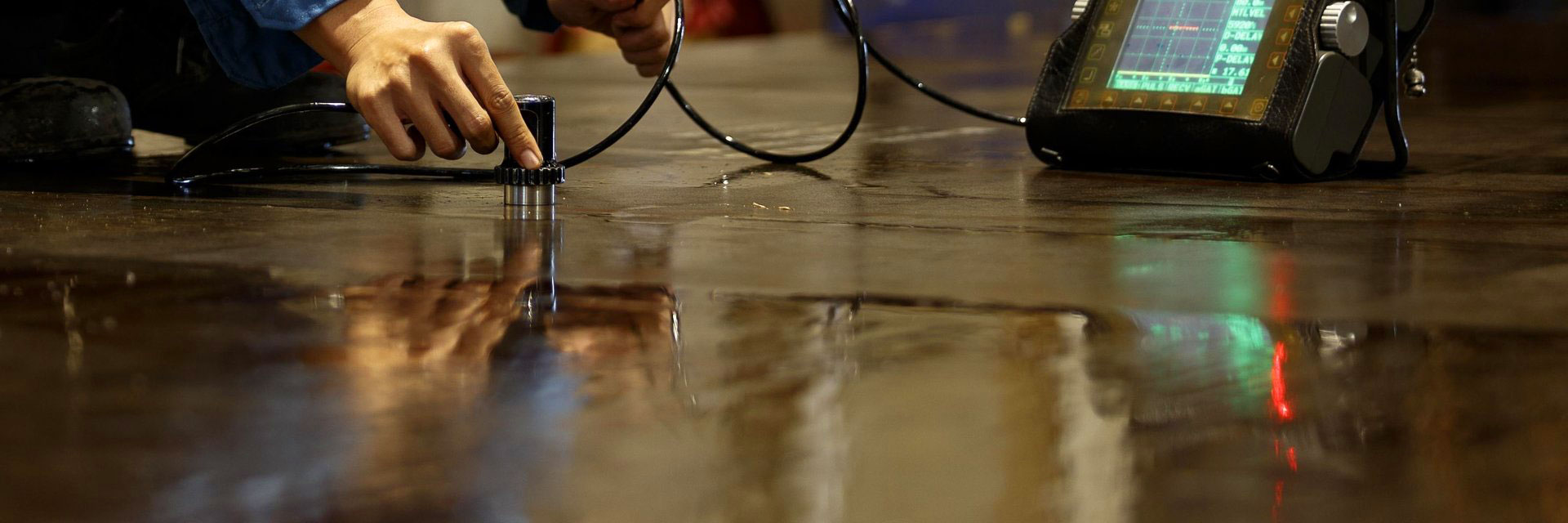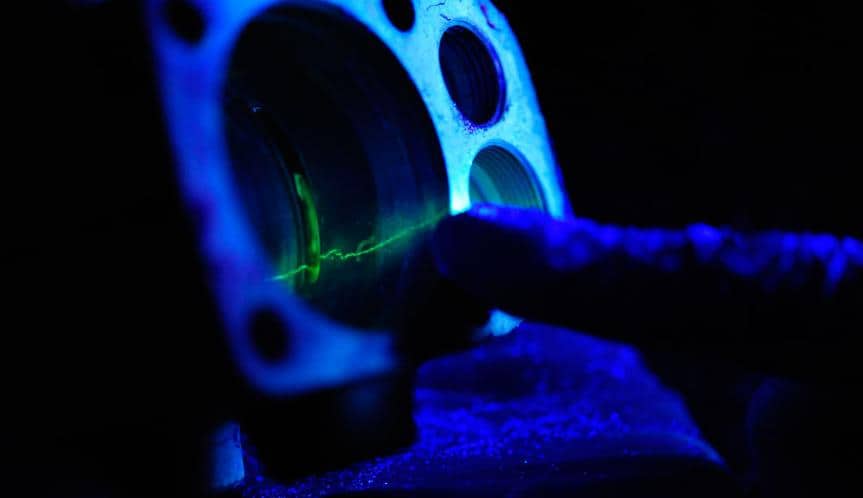

Liquid penetrant inspection (LPI) or paint penetrant inspection is a reliable, efficient and cost-effective method to detect surface defects of sources, castings and other non-destructible components. LPI is a portable surface inspection method that allows our Interactive Experts to perform extensive on-site penetrating examinations.

Liquid penetration inspection is a valuable tool to evaluate non-ferromagnetic and non-metallic materials. In addition to checking defects and cracks, it can also be used to determine other surface properties, such as porosity.
Parts must undergo a pre-cleaning (etch, alkaline or solvent cleaning) before applying the liquid penetrant. After allowing a suitable residence time, the excess penetrating is removed from the surface (but not from possible defects) and the part is dried. Then a developing powder is applied; this developer pulls paint leaking into cracks or pores, resulting in visible signs or indications that identify surface imperfections. Based on the results, an inspector presents a report on the type, number and size of defects on a component.
Our non-destructive testing (NDT) specialists are well trained in liquid penetrating inspection, among other qualifications, and have Level II and III certification from ASNT. EUROLAB provides Type II non-fluorescent NDT services and Type I fluorescent control to aviation, government, nuclear and post-market applications to all of the various commercial and nuclear codes.
American Metals Society
AMS 2645, AMS 2646, AMS 2647
American National Standards Institute
ANSI/ASME B31.1, ANSI/ASME B31.3
American Petroleum Institute
1104 API
American Society of Mechanical Engineers
ASME Chapter III, ASME Chapter V, ASME Chapter VIII
American Metal Society
ASM 2700
American Non Destructive Testing Association
NDT 8
American Test and Material Authority
ASTM E165, ASTM E1417, ASTM E1418
American Welding Association
AWS-D1.1
Deutsches Institut Fur Normung EV
DIN EN 571-1, DIN EN ISO 3452-5, DIN EN ISO 3452-6, DIN EN 10228-2, DIN EN ISO 3452-2, DIN EN 1371-1, DIN EN 1371-2
euro standard
EN 571
Military Standard
MIL STD 271F, MIL STD 6866, NAVSEA T9074-AS-GIB-010/271, MIL-STD-2132, MIL-I-6866, MIL-STD-1907
National Aviation and Space Standard
NAS410
Automotive Engineers Society
SAE J426
Various Customer Features
Including Aerojet Rocketdyne, Boeing, Bombardier, Cessna, GE, Hamilton Sunstrand, Honeywell, Northrop Grumman and Rolls Royce.
To get an appointment, to get more detailed information or to request an evaluation, you can ask us to fill in our form and reach you.